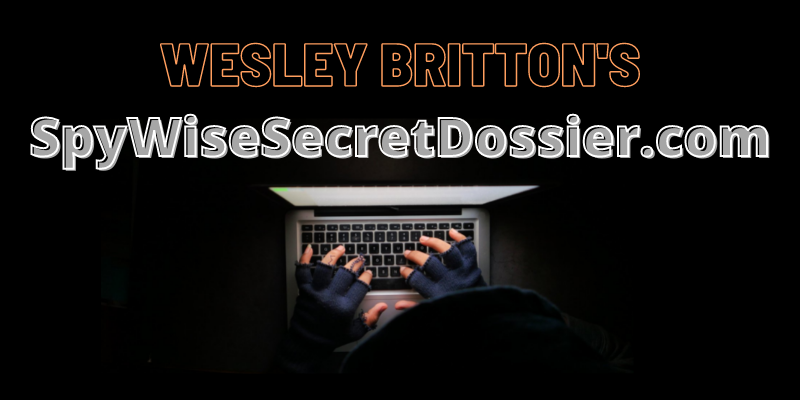
HOMEWesley Britton’s Books,
|
Spies on FilmSpies on Television & RadioSpies in History & LiteratureThe James Bond Files |
|
Spies on Television & Radio ~ Having a Burn Notice
Jones This Week? Tod Goldberg Has the Fix For You
By Wesley Britton 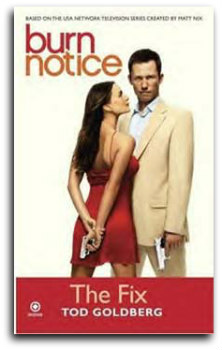
In the literary realm of media tie-in novels, one family holds a unique place for crafting great reads in that often overlooked genre. First, there was historian Burl Barer, who drew from his expertise regarding Leslie Charteris’ character, Simon Templar, to pen the 1997 novelization of the Val Kilmer film version of The Saint. Then, Barer’s nephew Lee Goldberg, former producer and script-writer for the Dick Van Dyke CBS crime drama, Diagnosis: Murder, continued the saga of Dr. Mark Sloan in novels based on that show – before going on to write a successful series of books based on the USA network hit, Monk. Now, another Goldberg, in this case younger brother Tod, adds his stamp to the family legacy. In 2008, he was contracted to write the first three novelizations based on another USA phenomena, Burn Notice. But make no mistake – Tod Goldberg is riding no one’s coat-tails. Among his many achievements, he wrote the novels Fake Liar Cheat (2000), the 2002 Living Dead Girl (a finalist for the Los Angeles Times Book Prize), and the short story collection Simplify, a 2006 finalist for the SCBA Award for Fiction and winner of the Other Voices Short Story Collection Prize. He’s also published travel books on the delights of Las Vegas and numerous articles in a variety of periodicals. But, as Tod can tell you, there’s a major difference between creating stories with your own characters and voice and writing books that not only employ faces familiar on TV screens, but coming up with stories using a tone and approach as distinctive as what we know and love in Burn Notice. Not only have viewers come to enjoy the relationships between Michael Westen and his mother and brother, not to mention Fiona and Sam, but we look forward to Michael’s voice-over commentary on the tricks of the spy trade. If these characteristics are going to transfer over into print, then any novelist has a tall order to fill. Judging from the first offering from Tod – the new Penguin edition of Burn Notice: The Fix – fans of the show won’t be disappointed by hearing even more from Michael and his circle, more than can be jammed into a weekly 45-minute outing. Readers who’ve never seen the show (where have you been?) can also get a good fix on what the show is all about, its humorous tone, the twists-and-turns of simple tasks gong awry, the plight of a modern “Equalizer” trapped in one city while trying to find out why he got that burn notice in the first place. How did Tod Goldberg accomplish this balancing act? Spywise.net asked him to share his insights in how he wrote The Fix – this is one conversation we hope inspires you to both check out a new TV spy classic and a book that captures what makes it so special. 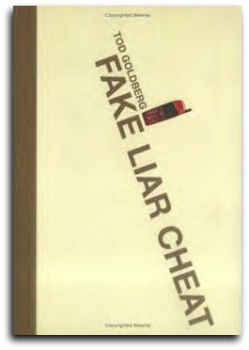
Q – As a writer of award-winning fiction, what lead you (other than the pay-check) to take on a series of books based on a television series? The paycheck didn’t play a role, really. I’ve been lucky enough in my writing career to do the things I want to do, writing-wise, and so when I was approached to do this the decision was more about completely changing speeds and doing something different. I wrote an essay about it in the LA Times recently – “‘Burn Notice’: The Novel” [Aug. 24, 2008]. The essence is that it gave me an opportunity to find a lot more readers for my work while writing about a character I already really liked. I’m a huge Burn Notice fan, so having the chance to add a little something to the franchise sounded really attractive. Q – What discussions did you have with Matt Nix and any other show participants as you began drafting the first book? What sort of guidelines were given as to what should or shouldn’t be in a Burn Notice novelization? For example, I noticed some background details on Michael Westen’s father in The Fix I haven’t seen in any of the episodes so far. I had a lot of preliminary discussions with Matt about what should or shouldn’t be in the book in terms of some very tangible physical things – the amount of actual violence, when it might be appropriate for Michael to actually shoot someone, what might be un-Burn Notice-y in sort of a macro sense, but in terms of the actual writing of the story he was very hands off. We met and talked about my ideas, he gave his input, and then during the few months when I was writing the book I’d frequently eMail him in the middle of the night with specific questions about things, but he wasn’t interested in reading every word as I wrote it, which made me feel very trusted. I know a lot of writers who’ve done books like these and have had the producers and writing staff dogging their every step and the results have been . . . stultifying, to say the least. But Matt is absolutely terrific and we have a nice working relationship. Before I started work on the 2nd book, I actually went in and hung out with the writers as they broke the season that’s on now, which was also very helpful in understanding how they all think of the stories, the character beats, things like that, so that when I’m approaching the books I can model a bit of what I'm doing on how they approach things, too. It’s been very gratifying to have that kind of access. In terms of the background stuff, that was one of those things that I actually had to really work with Matt on. I felt like I had to give the readers something the viewers might not get normally, but without fundamentally altering the show’s franchise elements or introducing things in Michael’s past that run counter to the direction the show was going. So the little bits about the dad or about Michael and Nate as kids I had to sort of argue for more specificity, which I think a reader demands. On TV, you can get by with some general backstory things, but no one wants to watch an episode where Michael ruminates on his shitty childhood for 43 minutes with specific memories played out in real time. But in the book, I think the readers want to see some things like that, so I put in a few small moments that reinforce what we know from watching the show: Dad was an asshole, mom was . . . unconventional . . . and Nate and Michael had a difficult upbringing. From the eMails I’ve received, this has been hugely successful for the readers, which makes me happy. Q – I felt you really captured the flavor of the show, especially Michael Westen’s wry commentary on the spy trade. How did you come up with this material, especially as you needed much more than would be in a TV episode? Actually, long before I started writing the books I started watching the show fairly religiously because I knew Matt casually – my oldest friend was in his fraternity in college. So we’d been introduced years and years ago when we were both, you know, dumb frat boys and then kept in periodic contact over the years – and was invested in the show from that standpoint already, but then anytime you put Bruce Campbell in something, well, you’ve got me hooked. Anyway, in terms of the material: I did a lot of research. A ton. And I have a lot of sources in law enforcement who are happy to help with things, and then sometimes, I’d want something to happen – specifically, there’s a scene where Michael has to open an envelope he thinks might contain a letter bomb – and then I’d sort of backwards engineer it so I could use it, which is half the fun to me. The joy of research, in my opinion, is not learning about things ahead of time, but learning about things when you need them, so that way when you write about it some of that exuberance of discovery ends up in the prose. 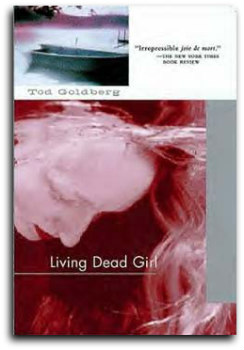
Q – What specific sources did you look at in your research? One book really had a profound effect on me and that was the book On Killing [by Dave Grossman], which talks about the mental toll killing has taken on soldiers over the years. It was particularly useful in talking about when Michael does and does not kill people. He doesn’t kill anyone in The Fix – and he rarely kills anyone on the show, either . . . last season’s final episode might be the one time that really sticks in my head where people died – and so looking at that book helped me in understanding the why of it all. It was also interesting to find out, in that book, how people avoid killing even when they are charged with doing it. So a lot of that sort of anecdotal stuff ended up influencing some scenes in the book. Q – You published some travel books on Las Vegas and live in California. Are you that familiar with Miami or were all those descriptions also part of your research? I’m not familiar with Miami in the least and I feel a little bit like a fraud writing about it, truthfully, without visiting, so I intend to go at some point this year to really get the feel for the place. So I’ve leaned on a lot of books about the city, lots of maps and the joy that is Google Maps. Getting the street views now, in particular, has been very cool. Plus, I also have some friends in the area and have been known to post things on my blog asking for help, which has always worked out well. Q – Are you a fan of other spy series on TV or film? How about any other books? I’ve seen every James Bond movie – I’m a Sean Connery man, with a strong Daniel Craig vibe rising in me – and loved things like The Man From U.N.C.L.E., which I watched in reruns as a kid, and shows like The Equalizer and Stingray, which I think share a lot of Burn Notice elements. My favorite spy book would probably be David Morrell’s Brotherhood of the Rose, which is probably more literary than conventionally action packed. But honestly, I’ve never been a huge fan of spy books as I prefer more noirish crime novels to thrillers. Q – One thing that seemed to distinguish the book from TV episodes is the amount and length of dialogue between the characters. What did you have to do to develop the story to make for a full-length novel? Well, the plot had to be more intricate. The episodes follow a pretty straightforward arc that just doesn't translate very well to print – readers demand far more twists and turns if they are going to spend five or six hours reading the book, so everything had to be elongated. So the characters had to interact more and the conflicts needed to be drawn out to a point where you can fill 300 pages of text. My natural inclination, honestly, in writing crime fiction is more towards minimalism, but I feel like the fans of the show read the books to be with the characters intimately and what is more intimate than being privy to their conversations? If it were solely up to me, I would do these like old Gold Medal paperbacks: 200 pages of brisk action and snappy dialog and that’s that. But 200 pages in a mass market these days feels very, very small! Q – Were you tempted to play a bit with the characters outside of the relationships we see on the show? For example, speaking of temptation, Fi seems more desirable to Westen in many scenes than what we see on television. Not too much. But in the case of Fi and Michael I think he always finds her exceptionally desirable, but has to play outwardly cool towards her. That’s the difference between the show and the books: you’re inside his head in the book, so you’re going to get a bit more of his particular truth. The real fun for me, actually was getting inside Sam’s head, something the show never does, so that was my one big creative leap. Q – Earlier, you mentioned liking Bruce Campbell. I take it you’re a fan of either Brisco County Jr. and/or Jack Of All Trades? What about his Sam Axe character intrigues you so much? Oh, no, I’m all about The Evil Dead. Bruce Campbell played a very important role in my development as a teenage boy with certain macabre tendencies. His character on Burn Notice, Sam, is great because he’s an absurd figure – an ex-Navy SEAL with girl problems, a yen for the drink, lots of strange “buddies” and a skill set that frequently requires him to get hit in the face as a diversion. He’s a little nutty and I like that. 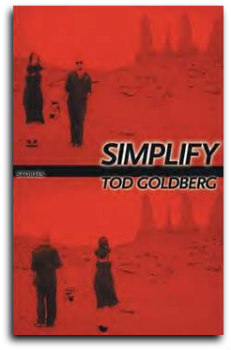
Q – I noticed one of the “heavies” Westen gets to torment was named Burl – which made me think of your uncle, Burl Barer. Are there inside jokes in your book most readers wouldn’t know about? Is the relationship between Mike and Nate at all similar to that of you and your “older, less attractive” brother Lee? The book is filled with inside jokes that fans of my other books and my siblings’ books would get, plus stuff I put in just to make myself giggle. The three heavies are actually named Burl, Stan and Danny . . . after two of my uncles and one of my cousins. There is an appearance from Harvey Mapes, from my brother Lee’s book The Man With the Iron-On Badge. My sister Linda Woods makes an appearance. Even a character from my first book is mentioned in passing. No, I wouldn’t say the relationship between Mike and Nate is similar to the one Lee and I have, specifically since I’d be the Nate in this equation and I’m far more suave and debonair. Q – The Fix was clearly set before the circumstances we see in season two. In future books, will we be seeing Carla and situations drawn from the new season? Tough to say. I know how season 2 shakes out, but the problem of having the books work in lock step with the show is that things can change at the last minute. I certainly make allusions to things happening in season 2 in the book I’m writing now, but my goal is to make these books evergreen, so you can pick them up without ever seeing an episode and pick up the drift without issue. Plus, my 3rd book is due in February for release in August of 2009 . . . and I don’t expect I’ll have a clear idea of everything that’s going to be happening in season 3 by that point. It’s more likely that the books will have a “case of the week” vibe to them vs. advancing the Burn Notice conspiracy. Q – Speaking of, when will book two be coming out? Can you share any insights into what readers can expect? Book 2, which is called The End Game, will be out in February of 2009, I believe. Readers can expect a lot of sentences that begin “When you’re a spy . . . ” and all of their favorite characters doing things to make life hell for Michael Westen. I haven’t finished the book yet, so I can’t be precise with everything that’s going to happen, but I imagine if you liked The Fix, you’ll like The End Game. Q – Are you working on any non-Burn Notice projects? Yes. I have a new collection of stories that’s set to come out in late 2009 that I’m finishing up, I just wrote a new story for another of those very cool Akashic Noir anthologies (I was in Las Vegas Noir and this new one is for Orange County Noir . . .) and, in addition to my fictional pursuits, I direct the Masters in Fine Arts Program in Creative Writing and Writing for the Performing Arts at the University of California, Riverside’s Palm Desert Graduate Center, which means I’m actively molding young minds . . . a frightening thought, huh? Spywise.net has two related interviews with members of Tod’s family ~ Burl Barer is interviewed in “‘The Saint’ in Fact and Fiction – An Interview with Historian and Novelist Burl Barer”. in the Spies in History & Literature section. Lee Goldberg talks about Diagnosis: Murder in “Behind the Scenes of ‘Discards’ – How Diagnosis: Murder Brought Back U.N.C.L.E., The Avengers, I Spy, and Mission: Impossible”, in the Spies on Television & Radio section. Tod Goldberg’s many novels are available in bookstores everywhere, as well as through these on-line merchants ~
Amazon U.S.
|